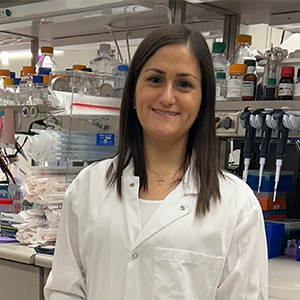-
Genetic testing proves beneficial in prescribing effective blood thinners

ROCHESTER, Minn. — Pharmacogenomics is a valuable tool for health care providers to help prescribe the right drug for the right patient to enhance efficacy and avoid side effects.
A new research paper funded in part by the National Heart, Lung and Blood Institute (NHLBI) shows a clear advantage of genetic testing in helping health care providers choose the appropriate anti-platelet drug. Testing helps determine if a patient carries genetic variants in CYP2C19 that cause loss of its function. These variants interfere with the body's ability to metabolize and activate clopidogrel, an anti-platelet medication.
Anti-platelet drugs are given to prevent complications from blood clotting after a procedure to open clogged arteries. These patients can use one of the various anti-platelet medications, such as clopidogrel, ticagrelor or prasugrel.
Patients with coronary artery disease are typically prescribed clopidogrel to reduce the risk of ischemic events, such as blood clots, stroke, heart attack, recurrent chest pain and death following a percutaneous coronary intervention or stent placement. But people who carry the CYP2C19 genotype that prevents them from activating the drug would benefit from the other anti-platelet medications.
The meta-analysis published in JACC: Cardiovascular Interventions sourced more than 1,000 research studies, including seven randomized clinical trials. One of the trials was TAILOR-PCI, a large study funded by the Mayo Center for Individualized Medicine and NHLBI.
Researchers from Mayo Clinic, University of Toronto and several other institutions evaluated data about the effect of the CYP2C19 gene on ischemic events in nearly 16,000 people. The meta-analysis compared patients who were treated with the newer anti-platelet agents ticagrelor or prasugrel, as opposed to clopidogrel.
"Our results suggest that clopidogrel can safely be given to approximately 70% of patients with coronary artery disease following percutaneous coronary intervention," says Naveen Pereira, M.D., a Mayo Clinic cardiologist, and first and corresponding author of the paper. "For patients who do not have the loss-of-function CYP2C19 genotype, there is no difference in using clopidogrel, as compared to ticagrelor or prasugrel. But these data show a 30% risk reduction in ischemic events for patients who are identified by genetic testing to have the loss-of-function CYP2C19 genotype. This information means that with the help of genetic testing, we could safely prescribe generic, well-tolerated, once-daily clopidogrel to most patients and reserve the use of the newer, more expensive drugs ― ticagrelor or prasugrel ― for those with the loss-of-function genetic variants."
Dr. Pereira notes that point-of-care genetic testing for CYP2C19 genetic variants is available and can be used by personnel who are not laboratory-trained. This testing has greater than 99% accuracy in identifying the genetic makeup of patients to guide such treatment. The test is inexpensive and can be administered at the bedside via an oral swab. Results are available in under an hour.
"We are pleased that our decision to fund the TAILOR-PCI study with the NHLBI several years ago will help ensure better and safer care for patients suffering from coronary artery disease, and serve to illustrate the value of genomic testing in the clinic," says Richard Weinshilboum, M.D., a pharmacologist and director of Mayo Clinic's Center for Individualized Medicine.
Knowing that most people can be safely and effectively treated with clopidogrel is useful information for health care providers, and this knowledge has practical benefits. Compared to ticagrelor and prasugrel, clopidogrel is less costly; accepted by most insurance companies; and carries fewer side effects, such as bleeding and shortness of breath.
"This meta-analysis confirms the impact of a pharmacogenomics approach to tailoring anti-platelet therapy in the treatment of coronary artery disease," says Michael Farkouh, M.D., a cardiologist and multinational clinical trials chair at the University Health Network's Peter Munk Cardiac Centre. "We believe this work should inform the next guidelines in the field and warrant further study with other databases." Dr. Farkouh is senior author of the paper.
###
About Mayo Clinic
Mayo Clinic is a nonprofit organization committed to innovation in clinical practice, education and research, and providing compassion, expertise and answers to everyone who needs healing. Visit the Mayo Clinic News Network for additional Mayo Clinic news.
Media contact:
- Terri Malloy, Mayo Clinic Public Affairs, newsbureau@mayo.edu
Related Articles







